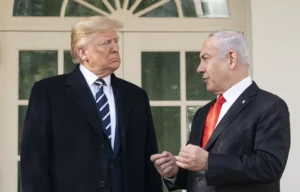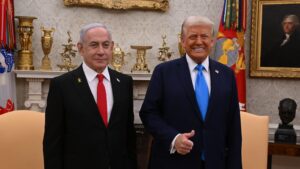Trump Announces Historic Breakthrough: Israel and Hamas Agree to First Phase of Peace Plan
In a development that could reshape the Middle East, U.S. President Donald Trump announced on October 8, 2025, that Israel and Hamas have agreed to the first phase of a comprehensive peace plan aimed at ending the devastating conflict in Gaza. The announcement, made through his social media platform Truth Social, marked a pivotal moment in diplomacy after two years of hostilities that have caused immense human suffering.
The agreement outlines a clear framework for immediate actions designed to build trust between the two sides while creating conditions for broader negotiations. The first phase focuses on critical humanitarian and security measures that could lay the foundation for lasting peace in the region.
Hostage Release and Prisoner Exchange
One of the most urgent aspects of the agreement is the exchange of hostages and prisoners. Hamas has agreed to release all 20 Israeli hostages currently held in Gaza. In response, Israel will release a corresponding number of Palestinian prisoners. This reciprocal arrangement is intended to demonstrate goodwill and provide a tangible first step toward reconciliation.
Families on both sides welcomed the announcement with cautious optimism. For many, it represents hope after years of anxiety and uncertainty. Analysts believe that the release could also serve as a confidence-building measure, essential for the next stages of the peace process.
Phased Israeli Withdrawal
Under the plan, Israel will begin a phased withdrawal of its military forces from Gaza, starting with a partial pullback to designated positions. This step is designed to reduce tensions and create a safer environment for civilians. Security analysts note that the gradual nature of the withdrawal is intended to maintain stability while giving both parties time to implement further agreements.

At the same time, Israel will retain strategic oversight to prevent potential security threats, ensuring that the peace process does not compromise national safety.
Humanitarian Access and Relief
Humanitarian aid is another cornerstone of the first phase. The agreement will allow the entry of food, medicine, and essential supplies into Gaza, addressing immediate needs of civilians caught in the crossfire. International organizations such as the United Nations and the Red Cross have welcomed the provision, highlighting that relief access is critical to easing the human cost of the conflict.
Residents of Gaza, many of whom have endured months without sufficient supplies, expressed relief at the news. “We finally feel that someone is listening to our suffering,” said a local aid worker.
International Support
The agreement has received widespread backing from the global community. Countries including Argentina, Canada, Japan, and New Zealand expressed hope that the deal would pave the way for a broader resolution. The United Nations praised both Israel and Hamas for taking the first steps toward reducing violence.

Israeli Prime Minister Benjamin Netanyahu called the announcement a “great day for Israel” and commended President Trump for his mediation efforts. Palestinian leaders expressed cautious optimism, noting that while the agreement offers hope, its success will depend on effective implementation and tangible improvements on the ground.
Looking Ahead
The first phase is expected to be implemented over the coming weeks. Hostage releases are set to occur within 72 hours of official ratification, followed by incremental steps in troop withdrawal and aid delivery. Negotiations for subsequent phases will address complex issues such as the political status of Gaza, demilitarization measures, and long-term governance arrangements.

President Trump plans to travel to Egypt to oversee ongoing talks and reinforce commitments from both sides. The involvement of Egypt, Qatar, and Turkey has been instrumental in facilitating dialogue and building trust between Israel and Hamas.
A Glimmer of Hope
While challenges remain, the first-phase agreement offers a rare glimmer of hope in a conflict that has left thousands dead and millions displaced. It demonstrates that even in long-standing disputes, dialogue and compromise are possible. For ordinary citizens on both sides, this agreement is more than a political milestone—it is a chance for safety, normalcy, and the possibility of peace.
As the world watches closely, the success of the first phase will be a litmus test for future progress. If implemented effectively, it could pave the way for a durable ceasefire and a step toward lasting reconciliation in a region long defined by conflict and hardship.
Also read: https://channel6network.com/boman-irani/

